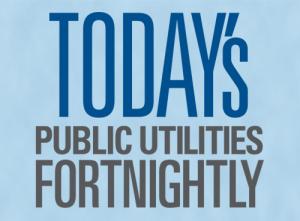U.S. industry continues to use fewer kilowatt-hours. From 2001 to 2017, industrial consumption is down 5.0 percent. While commercial consumption is up 24.6 percent. And while residential consumption is up 14.8 percent.

In 2001, industry was 29.4 percent of all consumption. In 2017, it had fallen to 25.7 percent.
So let's concentrate on commercial and residential consumption trends. Increasingly that's where the action is.
The latest Energy Department data shows year-to-date commercial and residential consumption in 2018 was the third highest historically.
The first four months of 2014 set the record. 2.2 percent more kilowatt-hours were consumed by commercial and resident customers than in the comparable period of this year, 2018.
And 0.9 percent more kilowatt-hours were consumed by commercial and resident customers in the first four months of 2015 than in the comparable period of this year. 2015 thus squeezes by this year into second place.
2018 is quite a turnaround from the last few years.
From 2014 to 2015, commercial and residential consumption in the first four months fell by 1.2 percent. From 2015 to 2016, it fell again, by 4.6 percent. From 2016 to 2017, it fell again, by 1.6 percent.
But from 2017 to 2018, consumption rose 5.6 percent.
Is this a temporary turnaround? We shall see as more months of data arrive at our doorstep for analysis.
No need to share. Now everyone in your organization can have their own PUF. As we phase out individual subscriptions to Public Utilities Fortnightly at organizations with over a hundred employees, we'll make it easy and economical for those agencies, associations, professional firms, utilities and vendors to sign up for an organization-wide membership.
Steve Mitnick, Editor-in-Chief, Public Utilities Fortnightly, and President, Lines Up, Inc.
E-mail me: mitnick@fortnightly.com

